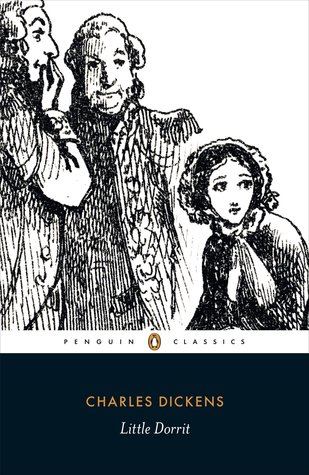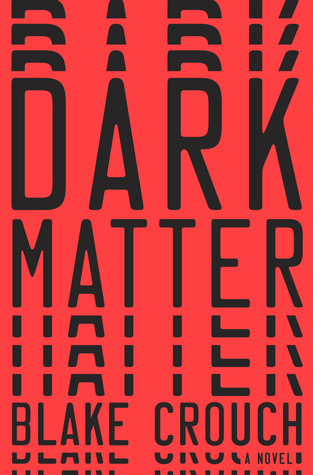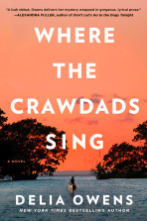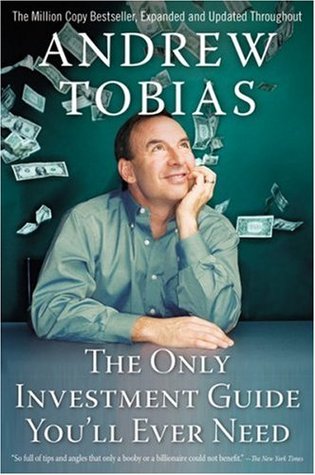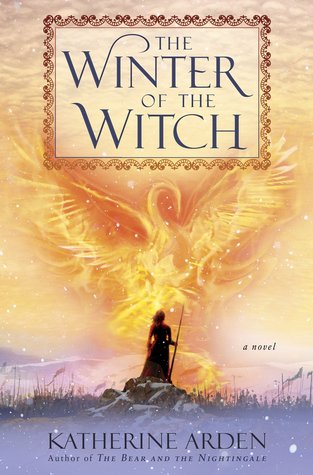The first time I read a parenting book that recommended abandoning punishment completely, I thought that sounded entirely crazy. Not that I've ever been a fan of corporeal punishment, but after all, "spare the rod, spoil the child" is in the Bible, right? Or something like that.
It was just hard to imagine how to parent children without "punishment," without timeouts for tantrums, without "consequences" for naughty disobedience, without at the very least verbal reprimands. But frankly, time-outs hadn't actually been working out for me all that well anyway, so I decided to give this "no punishment" thing a whirl, just see what happened. To be honest, I expected it to be disastrous. I expected it to lead to chaos and anarchy.
But I was completely wrong, and the parenting books were completely right.
I'll get to more on my experience in just a minute, but I've done a lot of thinking about this concept, and a while back I had a huge "ah-ha!" moment when I realized that no-punishment parenting is actually a very divine way of parenting. Hear me out for a second.
What are the reasons we punish children? I can think of two off the top of my head:
1.) To teach/motivate/extract good behavior
and
2.) Justice
Maybe there are other reasons to punish children, but at least for me, these two pretty much cover it. I would punish my children because "they just have to learn!"
But does punishment actually teach? In my experience... no. Well, yes actually, it teaches a lot. It teaches children to be afraid. It teaches fear. It also potentially teaches children they are not worthy of love. It rarely teaches children the lesson we actually want them to learn (that hitting is wrong, and I don't want to hit because it hurts others and I don't want to hurt others, I want to be nice them) and actually teaches them fear (I won't hit because I'm afraid of being punished, or I will hit and then I will lie or try not to get to caught because I'm afraid of being punished). Punishment most often teaches children to be afraid or ashamed, it rarely teaches them to modify behavior based on feelings of love and morality.
But then we get to that sense of justice. I mean, your kid hit someone! They can't just get away with that! You can't just let them go on about their day as if nothing happened, while that poor other kid is sitting there crying his eyes out! That's not fair! They deserve punishment because it's just! That's how the world works!
But here's where my epiphany about divine parenting comes in: when does God punish us? Immediately after we've done something wrong? Right there, as soon as it happens?
Or does He wait? Does He give us space to learn, space to change and grow, and space to repent?
How many of us give our children time to repent? I'm not just talking about five minutes, or even an hour. In the vast majority of cases, God gives us our whole lives to repent. Could we afford to give our children the same amount of time? And then, once that repentance happens, there is no punishment! None! It's covered by the atonement of Christ! We repent, and there is no punishment! That is God's mercy!
How many times, as a parent, are we so concerned about meting out justice, that we forget about mercy? How long do we wait for repentance, and, if they do repent, how many times do we punish anyway because of the principle of the matter? Because of justice?
Then this second thought occurred to me: God doesn't punish children! Ever! In LDS doctrine, children younger than the age of eight are considered not accountable for their actions, and completely covered by the atonement of Christ. They are not capable of sin, therefore they are not subject to divine punishment. Ever.
Why on earth, then, do I feel it is just to punish children?
Now admittedly, I've only ever parented children who are under the age of eight, so maybe things will change next year. Maybe punishment is more justified with older children who are more accountable for their actions. But I'm guessing that even then I want to err on the side of mercy, on the side of giving time and space for repentance.
But now I come to the big question: if you don't punish children, how do they learn? How do you teach?
This is the question that stumped me at the beginning. But here's what I've started to figure out: not punishing children for misbehavior is not the same thing as ignoring misbehavior. It simply means waiting for the right moment, and then teaching through means that look nothing like punishment. In fact, what I've realized is that punishment is actually a lazy form of teaching. It is much harder, but also much more worth it, to consciously teach morality and good behavior in calm, intentional moments. Sometimes the heat of the moment requires redirection (like physically holding a child's arm to keep them from hitting, and trying to direct them to play somewhere else), but the key thing is not to react angrily (much harder said than done), and really attempt to remain as calm as possible. No one can learn in the heat of the moment, especially not children. But later, maybe right before bed when everyone is feeling calmer and you're snuggled up on the couch reading a book together, then you can start the conversation, "Remember earlier today, when you were hitting your brother? Was that a nice thing to do? What should you do next time you feel angry with your brother?" Surprisingly, this even works with my two-year-old. This is the moment for teaching.
As I've stopped "punishing" my children, I've even started viewing their behavior differently. I've stopped seeing them as being "naughty" or "disobedient," and instead I see little beings who are working so hard to learn, but who don't always get it right. Who does? But I have so much more grace now for age-appropriate or situation-appropriate behaviors that before would've been deemed "punishable."
My oldest is such a really, really good kid. He is responsible and obedient and just really awesome. Sometimes he gets plans in his head; projects he's working on that he really wants to finish. But I come barging in with demands that he stop what he's doing and go eat dinner, go take a bath, go get pjs on, go to bed. Naturally, he resists. It's hard to be interrupted. Even I as an adult get upset when people interrupt me and force new demands on me, why should I expect my son to not be upset? Why do I expect more mature behavior from him than from myself? The old me would see his resistance as disobedience. The new me tries harder to listen. What's this project? How long is it going to take? Can you maybe just do this part and then get ready for bed? Can we find a compromise?
Nothing about this situation deserves punishment, even if the way my son expresses his frustration feels rebellious or annoying or disobedient. It isn't disobedience, it's simply a person learning how to balance strong emotions.
My middle child is generally the sweetest, easiest kid on the planet. But if he doesn't get enough sleep or enough food, boy, do we know about it! He generally wakes up in the morning hangry hangry hangry! He'll say he wants a bowl of cheerios, but after I get him one he'll scream and cry about how he actually wants Raisin Bran. But if I get him that instead he screams and cries all over that it was cheerios! And back and forth until I just want to throttle him. It's so frustrating! But is it punishable? Usually I find that if I sit with him long enough to calm him down, and get a bite of food into him, after three or so bowls of cereal he's back to his happy little self! All trace of tantrum is gone! Would it teach him anything to send him to timeout? Punish him by not letting him eat at all? No. I just have to trust that at some point he will have more self-control than he does now. Even I'm grumpy when I'm hungry, do I really expect him to feel better than I do?
And my youngest. The most spirited, the most rambunctious, the most energetic of my three. Today she asked me for a strawberry, so I got her one from the fridge. I told her to go sit at the table and eat, but she started down the hallway to her bedroom. I called to her and reminded her that food (especially sticky, juicy, red stain food!) needed to stay in the kitchen, and would she please come sit at the table? She looked right at me and with a sassy little shake of her head said, "NO!" and continued down to her room. I stood there for a second, dumbfounded at the boldfaced disobedience. I could feel the need to punish. I felt the need to run and grab her and physically bring her back and scold and lecture her. How could I let her get away with such disobedience? Wasn't it setting a bad precedent? Wasn't I being soft? But I took a moment to stop and regain calm. I followed her down to her room and said one more time, "Please come eat that at the table. Food isn't allowed in the bedrooms." Then I turned and walked away. It took a minute, maybe two. But she came back to the kitchen.
How grateful I am that I gave her time! Maybe she was testing boundaries and pushing up against my rules, but she wasn't actually trying to be disobedient. And even if she was, even if she never came back to the kitchen and managed to wipe strawberry juice over all the carpet and plush surfaces of her room, she's only two. She doesn't know right from wrong yet. Does that deserve punishment? Or does that deserve more patient teaching while we wait for her to grow and mature?
Along with avoiding punishment, I now also try to avoid "consequences" in my parenting too. I've heard people talk about the idea of "natural consequences," but in my humble little opinion, if it truly is a "natural consequence," then a parent doesn't have to actually do anything to bring it about. For instance, if a child touches a hot stove, the natural consequence is that they will get burned. The parent didn't have to do anything to bring that consequence about. But if a child fails to do their Saturday morning chore, and as a "natural consequence" is made to miss out on the afternoon birthday party of a friend... that is a punishment. There's nothing "natural" about that. I try really, really hard to avoid any "if, then!" phrases as a parent, any threats, anything that can be construed as, "If you don't do this, then there will be a consequence!" It's not a consequence, it's a punishment.
I will admit this incredibly hard, and I'm not perfect with it. My default "consequence" situation usually happens around bedtime, when my oldest is stalling and dragging things out, and I find myself threatening, "If you don't get your pajamas on and brush your teeth right now, there won't be any time for me to read to you!" This feels like a natural consequence at the time (I always have so much work to get done at night, that if bedtime doesn't happen fast enough, I start to get panicked with stress), but my son sees it for what it is: a threat and a punishment. Occasionally it motivates him to get moving a little faster, but usually it spirals into misery. He continues to dally (usually because his mind is focused on something else), and I continue to fume, until I explode and walk out of the room and slam a door (a few weeks ago I even dramatically threw the book across the room smacking it against the wall... very mature), and then he cries and throws a tantrum because he just wants me to read to him. He just wants to make sure I still love him. He wants to reconnect and heal. So I have no choice but to go back on my ultimatum threat and read to him. Try to heal the breach. Because what kind of mother punishes a child by refusing to read to them?
So I try, and try again, to avoid threats. To avoid ultimatums. To avoid any language that forces compliance in fear of a consequence.
But I still see the questions in your mind, because they were the same ones in mine: then how do you get your kids to do what they need to do? How do you get them to see what they've done is wrong? How do you get them to behave? How do you make it feel like they are not "getting away" with something? Won't the kids grow up spoiled, soft, and self-centered if they are never punished?
And here's all I can say: maybe. Except that doesn't seem to be happening with my children.
I'm not saying my children are perfect little angels, that I stopped punishing and they started being perfectly obedient. I would guess they throw just as many tantrums and have just as many "difficult moments" as most children their age. But they certainly don't have more. They are not "spoiled" (as far as I can judge) or headed for a life of rebellious crime (again, as far as I can tell).
But they are happy.
Here's the biggest change I've noticed: Throwing out punishment didn't change my children's behavior, but it did decrease the negativity in our home by probably about 90%. I personally no longer felt the conflict from enforcing punishment. I no longer have to be the bad guy. I don't have to yell (although I sometimes still do, working on it!), I don't have to scold, I don't have to make someone sit in timeout, I don't have to take toys away, I don't have to threaten or cajole. I simply redirect and stay as calm and positive as I possibly can.
And I apologize when I mess up. That part is pretty key too.
And for the most part, I have normal happy kids, who experience a normal range of expected emotions (including frustration, grumpiness, impatience, sass, anger, and boredom), and who are often very compliant, and sometimes not. But overall, they are happy. They feel safe. They know they are loved. And they are thriving. Our home feels peaceful. It really does. My children fight sometimes, but really, not all that often. They have tantrums, but really, not all that often. I get to the end of my rope, but really, not all that often. The overwhelming feeling in our home is peaceful and happy, which is exactly what I want it to be.
I want to emphasize that this is a kind of parenting that we are still working on, my husband and me together. Last weekend, we took the kids to run some errands to a few stores. It was miserable. They were whiny and out of control. In the car on the way home, two kids were crying, and the one in the back was verbalizing his own boredom and frustration in that particular tone made specifically to grate on a parent's very last nerve. My husband turned to me and asked, "How do we get them to stop whining? What are we supposed to do?"
My answer surprised even me. I told him, "Nothing. We do nothing. The kids are tired. We made them stay up late last night (to participate in a babysitting co-op), and they didn't get enough sleep, and probably got too much sugar, and then we dragged them to a bunch of boring furniture stores, and frankly, it would be strange if they weren't miserable right now. They are acting completely appropriate for their age and situation. They certainly aren't in any position to be taught right now. So we just wait until they are." Later that night my husband did have a talk with our oldest son about having more patience when he's bored, and maybe helping out with the younger two instead of just complaining. Did it work? Did he learn his lesson? Maybe, maybe not. But what he didn't learn was to be afraid of us, and that's something.
I want my children's behavior to be motivated from a place of love, from a sense of rightness, from a knowledge of moral duty. I do not want my children's behavior to ever be motivated by fear of punishment, fear of lost love, fear of angry parents. When they mess up and make mistakes (really mess up, not just fail to meet arbitrary expectations I unfairly place on them), I want them to feel sorry because they truly feel sorry, not because they are sorry they got punished. This is a more difficult way to teach, but it is a better one.
God always gives us space. God allows us all time to learn, and grow, and repent. He gives us this entire life, a probationary period, a time to prepare and to repent. Sometimes He can't prevent the true natural consequences of our choices, but in most situations, He withholds Divine Punishment until the very end, when time has actually run out. God's plan is NOT a plan of punishment. That is the point of the atonement, so that not a single one of us will ever have to suffer a moment of punishment if we choose to live worthy and repent. God does not teach through punishment. And it is my humble testimony and opinion that we can parent in God's divine pattern. We can allow our children space to learn and grow and repent. We can teach in the calm moments (never the heated ones). And we can simply let go of punishment. Period.
Okay now, I'm almost anticipating decent in the ranks, so please, if you disagree, or if you have a "But what about this???" situation, please feel free to comment! This post is part of me just working through all my thoughts and feelings about this pretty radical idea, so feel free to work through it with me! I'd love to know your thoughts/opinions!





